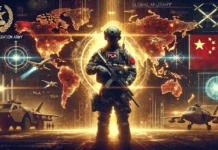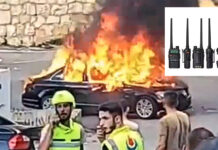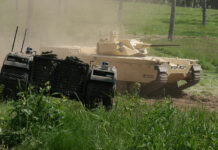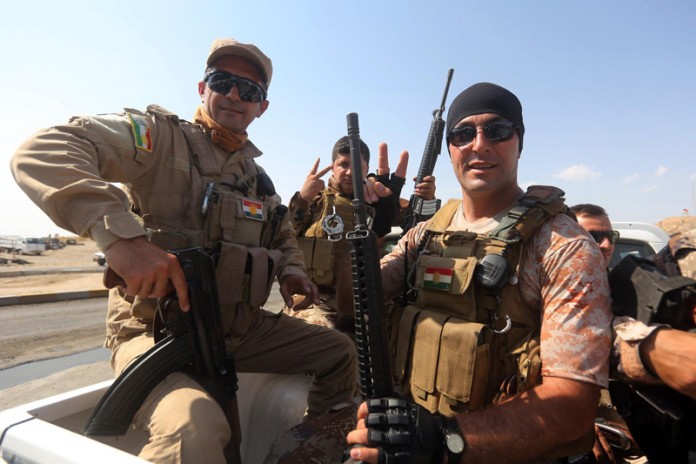

Part 2 of 3 in a special series about the role of Kurds in the war with ISIS
When looking on the enfolding military situation in the Middle East, particularly in Iraq and Syria, the Islamic State in Iraq and el-Sham (ISIS – aka Da’ish) that swept into northwestern Iraq in June 2014 is remarkably different from its Islamic predecessor, Al Qaeda in Iraq.
The earlier organization operated mostly in secret cells, and its leaders were uninterested in acquiring territory, believing that a fixed location involved unacceptable risks. Its leaders, those operating in Iraq, kept very much in the dark, inspired by the central leadership in Afghanistan.
ISIS is different. Led by Abu Bakr al-Baghdadi, who holds a Ph.D. in Islamic studies from Baghdad University has spent time in an American military prison in Iraq. At the age of 43 he is said to be a flamboyant figure, a self-styled successor to Osama bin Laden. Baghdadi’s goal is to re-create the era of the caliphate, when the ancient Islamic regime ruled from Constantinople to Morocco and the Arabian Peninsula. ISIS is run by a council of former Iraqi generals, according to Hisham Alhashimi, an adviser to the Iraqi government and an expert on ISIS. Many are members of Saddam Hussein’s secular Ba’ath Party who converted to radical Islam in American prisons. Baghdadi has divided his conquered Iraqi lands into seven “Vilayets,” the name given to provinces in the former caliphate.
“The Kurds are currently the only serious military element fighting ISIS to prevent the establishment of its Islamic caliphate”
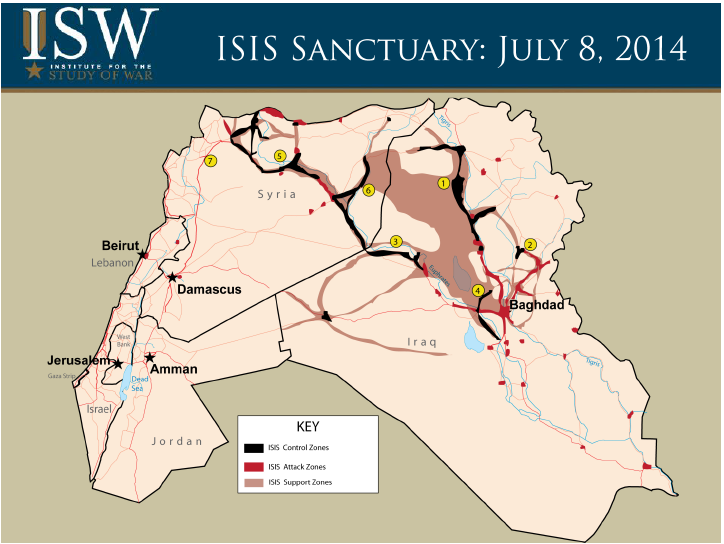
Baghdadi has about 22,000 men and women in arms under his command, 10,000 fighters in Iraq and 12,000 in Syria. ISIS is also backed by tens of thousands of active supporters in both countries. In Iraq, an elite force, called the “House of Islam”, is dominated by foreigners, including several hundred Europeans, Australians, and Americans. Many of them are potential suicide bombers, but some have gained military and technological expertise in their former home countries.
Alhashimi claims that the group is increasingly well funded; he estimated that on every month ISIS takes in about $10 million from kidnapping, and more than a $150 million dollars from smuggling oil into Turkey and other neighboring countries, often selling it at the bargain price of about a dollar a gallon. As of early this year, ISIS had also had a cash pot estimated at nearly one billion dollar in cash, much of it seized in banks in cities taken over in Iraq and Syria.
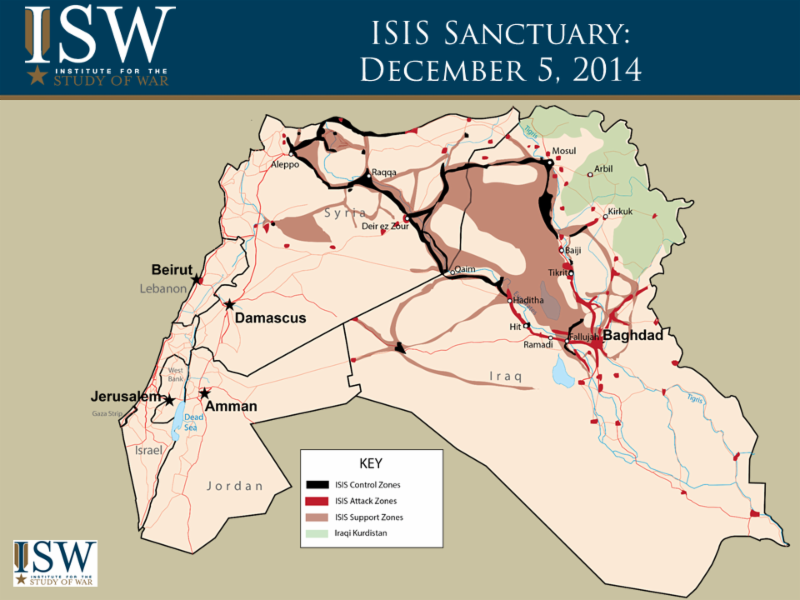
Its military commanders have relied on a combination of conventional and guerrilla tactics—along with terrorism—to achieve their ends. ISIS opens with a sustained artillery bombardment, which can last for days, then sends in waves of suicide bombers. When the defenses start to crack, its fighters race in on trucks, guns firing rapid volleys. This was how ISIS conquered the Iraqi cities of Sinjar and Al Qaim, on the Euphrates.
As ISIS closed in on Kirkuk, one of the largest cities in northern Iraq, the Iraqi Army around the city began to collapse. Six Iraqi divisions melted like the snow. Right then the Kurdish military leader Masoud Barzani gave the order: “Fill the vacuum.” The first of 30,000 Kurdish peshmerga militia fighters moved forward, taking over posts that the Iraqi Army had abandoned. By midnight, the Kurds had taken possession of Kirkuk, and Barazani soon made it clear that they would never give it back.
Through the ISIS war, the Kurds as a nationality have now re-appeared on the world stage. They are currently the only serious military element fighting ISIS to prevent the establishment of its Islamic caliphate. On this changing political landscape it feels as though everyone is learning the rules of a new game.
ISIS’ advances in Iraq — including a June 11 attack on the Turkish consulate in Mosul, during which the group took Turkish diplomats and security officials hostage — has added urgency to the drive to improve relations between Turkey and Iraqi Kurds. It now seems safe to say that if the Iraqi Kurdish regional government declared independence Ankara could perhaps become the first capital to recognize it. In today’s Middle East, in other words, ISIS is a bigger threat to the Turks than a Kurdish independence in Iraq.
“If the Kurds will not immediately get substantial modern military support, it may soon be too late to save the region from becoming another Islamic Afghanistan”
But in order to fight ISIS effectively the Peshmerga urgently needs modern weapons, which only the Americans can deliver. Others may help, but may not be enough to maintain a long term war fighting, which looks inevitable as western nations hesitate to get actively involved in this strange but highly dangerous conflict. If the Kurds will not immediately get substantial modern military support, while ISIS continues to arm itself from American weapon arsenals abandoned by the dwindling Iraqi army, it may soon be too late to save the region from becoming another Islamic Afghanistan, which might endanger not only this part of the world, but soon enfold into a global Islamic war against western civilization.
This article is first in a three-part series. Stay tuned for:
- Part I – ISIS and the Kurds – Fighting ISIS trigger new hope for independence
- Part III – Turkey and the Kurds – Practical coexistence with Turkey

